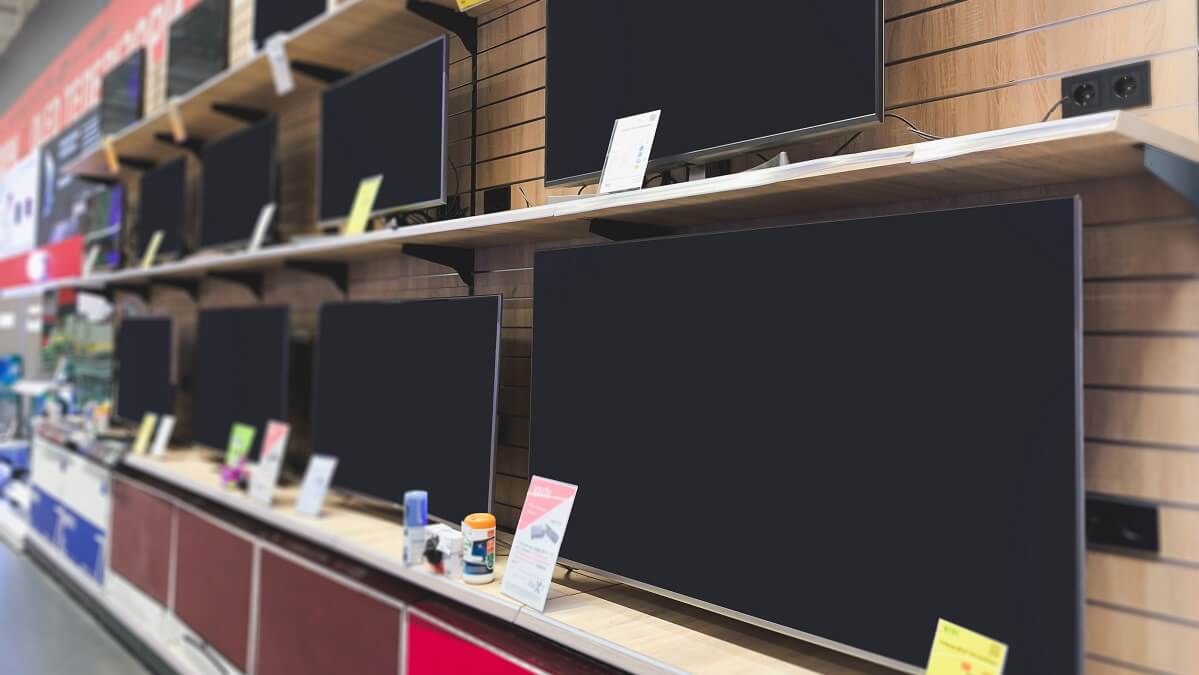You may not have heard the term ‘broadcaster prominence’ but it’s one that you’ll hear with increasing frequency in coming months and it could mean you’ll be paying more and have less choice when buying your next TV.
TV manufacturers and free-to-air networks are crossing swords in a debate about a regulation proposed by the federal government. And proposed legislation surrounding it could mean you’ll be paying more for a TV.
Broadcaster prominence, described by some network executives as the most pressing regulatory issue facing free-to-air television stations, involves giving those stations greater prominence as a default on televisions.
Broadcaster prominence legislation, flagged and promised by the ALP before the last federal election, could compel the makers of TVs sold in Australia to promote local free-to-air television apps above pay services such as Netflix, Binge and Amazon Prime.
But what’s good for the goose will be bad for the gander, if that metaphorical gander is a cohort of electronics manufacturers that supply televisions to Australians. So says the Consumer Electronics Suppliers Association (CESA), which represents brands such as LG, Panasonic, Samsung and Sony. According to a submission from CESA to the government, it’s Australian viewers who will suffer the most if broadcaster prominence is legislated.
“It would generate significant costs for reconfiguring TVs here … This would also likely result in a much smaller range of TVs available to Australian consumers,” CESA said in its submission.
In December, the Albanese government published a paper titled Prominence framework for connected TV devices, which outlined a number of options for ‘connected TV devices’ – what most would refer to as ‘smart TVs’ – for consideration by all stakeholders.
The 45-page document outlines a number of broadcaster prominence framework models, which range from a reporting regime through to a full ‘must-promote’ obligation.
CESA, part of the Future of Television Working Group that is considering the proposal, is not the only organisation opposed to the proposals at the ‘must promote’ end of the spectrum. Global tech giant Google and Telstra are both against the concept.
Telstra says it doubts the broadcaster prominence framework will lead to more people viewing Australian content, and believes it could lead to increased manufacturing costs of regulated TV devices, which will then be passed on to consumers.
In its submission, Google said the consumers’ right to choose was at risk: “User choice should be respected and promoted. The regulatory framework should focus on ways to offer opportunities to consumers that they may or may not take up – as opposed to forcing particular choices on consumers.”
Streaming provider Netflix believes any imposed obligations should be minimal, taking a ‘must carry’, rather than a ‘must promote’, approach. In its 10-page submission, the provider said: “Streamers invest millions of dollars in Australian content each year and should not be disadvantaged if the government seeks to broadly regulate prominence. Netflix has been investing in Australian stories since 2014.”
Unsurprisingly, Free to Air Australia, which represents the Seven, Nine and Ten networks, disagrees, with its 36-page submission declaring: “A must carry and must promote prominence framework under the Competition and Consumer Act 2010 (CCA) is the most efficient and effective process for achieving the government’s commitment [of of ensuring prominence for local TV services].”
Submissions on the broadcaster prominence proposal have now closed, but no date for a decision has yet been set. For now, it’s a matter of (in between watching your favourite TV shows) ‘watch this space’.
What do you think about the proposed legislation? Do the free-to-air networks have a case, or should manufacturers be allowed to configure televisions as they see fit? Why not share your thoughts in the comments section below?
Also read: Power-hungry appliances you should be switching off


This seems inappropriate legislation to me and it would act as a disincentive for free to air braadcasters to lift their game. The infantile, insulting rubbish boadcast by some channels doesn’t deserve any priority.
The rise in prices as a result of this senseless proposal combined with the hindrance in selecting the desired programs will probably encourage people to hang onto their old TVs so sales would drop. The reduction in serviceable TVs going to the tip might be the silver lining.
The government might however, find it a technical challenge to bring this legislation into full effect. Almost any internet capable screen coupled with a small laptop or similar device can be configured into a smart TV which besides all the cable TV and ovseeas stations can receive free to air by internet. I have been doing this for the past four years since the ‘smarts’ on our TV became less so. How will the legislation cover this?
I cannot recall any mention of this part of the ALP policies going into that election. I doubt very much if a statistically significant number of voters were aware of it at all.
It appears that it is intended to discourage freedom of choice in what viewers chose to watch on their televisions at home.
What benefit, if any, would be felt by the average Australian is this goes through? As discussed here, it would appear to be an additional cost to buyers with no benefit?
The devil is in the detail again.
No doubt it is an idea that Labor can use the FTA platforms to peddle its propaganda whereas the myriad of streaming apps that require subscriptions are free of Labor propaganda. A long-term plan, like compulsory super as a prop for the unions.